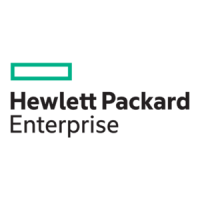259
<Sysname> system-view
[Sysname] ripng 100
[Sysname-ripng-100] import-route isisv6 7 cost 7
import-route (OSPFv3 view)
Use import-route to redistribute routes.
Use undo import-route to disable route redistribution.
Syntax
import-route protocol [ process-id | all-processes | allow-ibgp ] [ allow-direct | cost cost |
nssa-only | route-policy route-policy-name | tag tag | type type ] *
undo import-route protocol [ process-id | all-processes ]
Default
OSPFv3 route redistribution is disabled.
Views
OSPFv3 view
Predefined user roles
network-admin
Parameters
protocol: Redistributes routes from the specified routing protocol, which can be bgp4+, direct,
isisv6, ospfv3, ripng, or static.
process-id: Specifies the process ID of a routing protocol, in the range of 1 to 65536. It defaults to 1.
This argument takes effect only when the protocol is isisv6, ospfv3, or ripng.
all-processes: Redistributes routes from all the processes of the specified routing protocol. This
keyword takes effect only when the protocol is ripng, ospfv3, or isisv6.
allow-ibgp: Redistributes IBGP routes. It is available only when the protocol is bgp4+.
allow-direct: Redistributes the networks of the local interfaces enabled with the specified routing
protocol. By default, the networks of the local interfaces are not redistributed. If you specify both the
allow-direct keyword and the route-policy route-policy-name option, make sure the if-match rule
defined in the routing policy does not conflict with the allow-direct keyword. For example, if you
specify the allow-direct keyword, do not configure the if-match route-type rule for the routing policy.
Otherwise, the allow-direct keyword does not take effect.
cost cost: Specifies a cost for redistributed routes, in the range of 1 to 16777214. The default is 1.
nssa-only: Limits the route advertisement to the NSSA area by setting the P-bit of Type-7 LSAs to 0.
By default, the P-bit of Type-7 LSAs is set to 1. If the router acts as both an ASBR and an ABR and
FULL state neighbors exist in the backbone area, the P-bit of Type-7 LSAs originated by the router is
set to 0. This keyword applies to NSSA routers.

